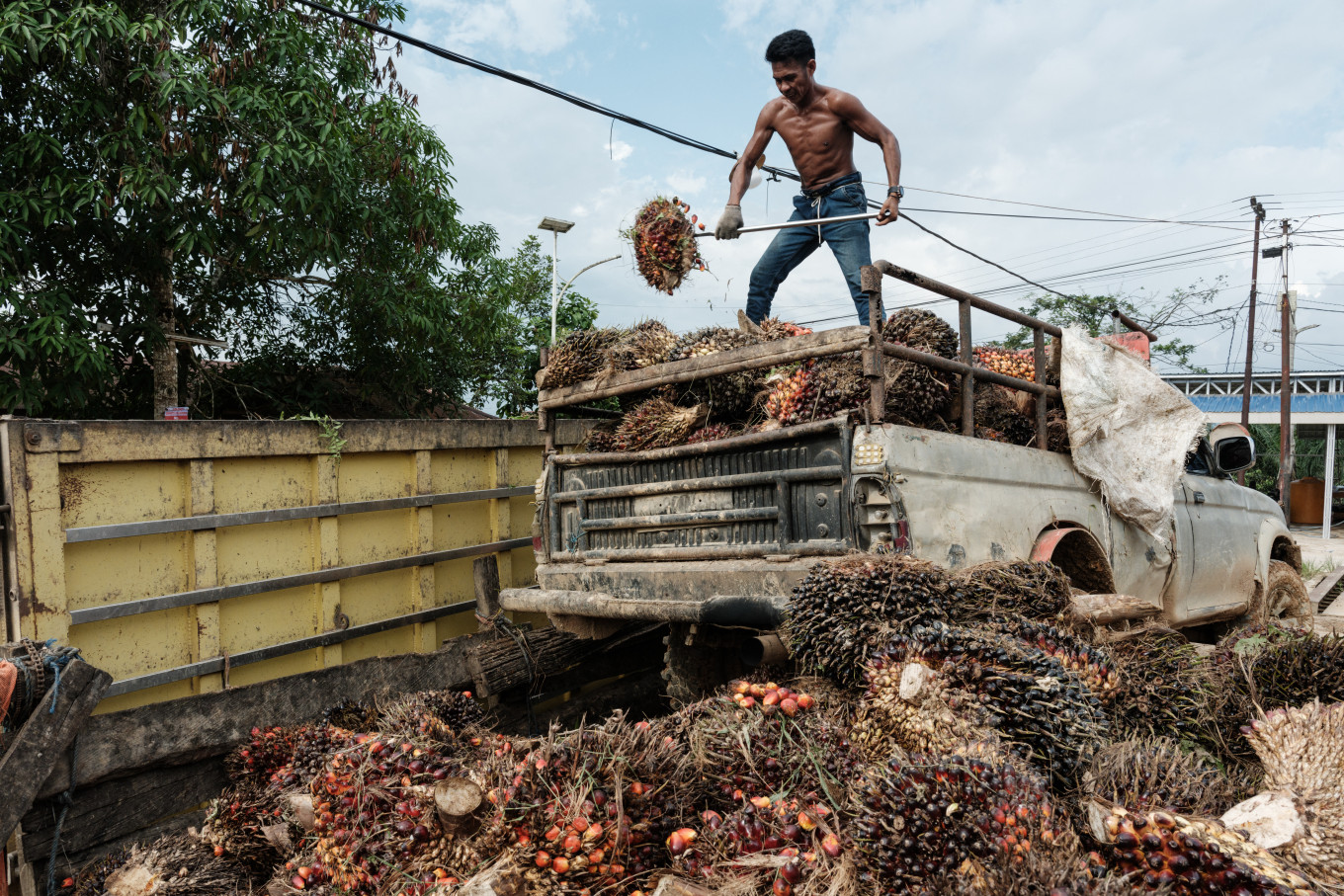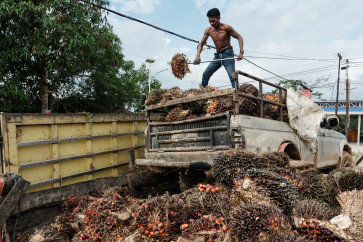Popular Reads
Top Results
Can't find what you're looking for?
View all search resultsPopular Reads
Top Results
Can't find what you're looking for?
View all search resultsBusinesses await Prabowo’s guidelines on the palm oil industry
The shift in international perception toward a more favorable view of palm oil as a commodity and the industry as a whole presents an opportunity for Indonesia to bolster production, so long as the related policy measures also include enhancing bureaucratic efficiency and coordination.
Change text size
Gift Premium Articles
to Anyone
P
resident Prabowo Subianto has put the achievement of food and energy self-sufficiency in the next four to five years at the top of his economic development goals as one of the keys to bringing prosperity to the country’s 280 million people.
The President often mentions the strategic role of palm oil in achieving energy self-reliance and food security, and he is strongly committed to further boosting the palm oil industry toward reaching the long-term production target of 100 million tonnes annually by 2045, double the current annual output of around 50 million tonnes.
Prabowo also has committed to increasing the mandatory palm oil content in the biodiesel mix to 40 percent (B40), from 35 percent (B35) currently. Palm oil use in biodiesel accounted for 46 percent of total consumption last year, with the food industry taking up 44 percent and the oleochemical industry 10 percent.
The President’s idea to bolster palm oil production is indeed quite appropriate since the commodity is a very important component of the economy even now, as the Industry Ministry’s Agro-industry Director General Putu Juli Ardika elaborated last month at a business conference in Jakarta.
Ardika told the conference that the palm oil industry alone contributed 3.5 percent to Indonesia’s gross domestic product in 2023, employing 17 million workers both directly and indirectly, involving more than 5 million shareholders and accounting for 12 percent of total export earnings.
According to him, equally important is that the industry has expanded its growth centers, which had been concentrated in Java for many decades, to Sumatra, Kalimantan and Sulawesi. The commodity is also the most advanced in terms of downstreaming, as palm oil is now used in 193 manufacturing processes.
Many agronomists and industry players share the view that the plan to double palm oil production is still environmentally viable and technically feasible, because there are still large, degraded areas that can be converted into oil palm estates without touching primary forests.



















